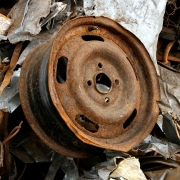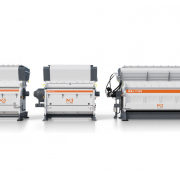BIR’s Global eForum: Business Activity despite the Virus
The lockdown and the social distance requirements because of the coronavirus pandemic had prevented the BIR convention in Istanbul in May – but the Bureau of International Recycling has found a solution.
To inform its members about the latest developments, the global eForum was created. The series of online webinars ran from June 3 to June 23, and each focused on the specific commodity covered by the world recycling association. This virtual event began with the session of the International Trade Council, moderated by its Chairman Michael Lion of Everwell Resources Ltd (China), and the theme was “Spotlight On Global Trade – The impact of Pandemic on Global Markets”. An important realization was, for example, that international trade still takes place; however, the material volumes are low. The same applies to collection rates.
China
With regard to present and future markets, the People’s Republic of China is still an economically influential country; the attendees feel confident, that there will be a national stimulus package after the pandemic. China would continue to be “a major factor” in the global marketplace as a consumer of materials, David Chiao of Uni-All Group (USA) is convinced. He also pointed out that the country with new classification after July*) would not consume mixed metal scrap but metal products. In view of international trade, a container shortage earlier in the pandemic has ended, Chiao informed. He expects that a further container equipment imbalance could emerge in another month or so as Chinese exporters were experiencing a growing shortage. Despite a drop in oil prices, freight rates had headed higher in recent months as result of increased surcharges.
Mark Sellier of Global Metals Network Limited (Hong Kong) emphasized that in line with the many businesses taking “a very conservative approach” to risk at present, his own company favors secure payment before relinquishing title to goods. Business conditions had been made more challenging because it was not possible to visit customers’ yards/factories or to assess such factors as stock levels, he reported. However, his business was looking to maintain regular direct contact with customers through video links.
Furthermore, there had been “considerable difficulties” in obtaining CCIC-certification (China Certification & Inspection Group) in some parts of Europe because of travel restrictions and office closures, Mark Sellier informed. Against this backdrop, Sébastien Ricard of Paprec (France) said that no real issues had arisen with CCIC-certification with regard to fiber trade because – in general – relatively small volumes were currently being shipped to Asia. A switch in Europe from fiber “over-supply” to “over-demand” had intensified the focus on supplying more local markets.
Providing a plastics and rubber perspective, Max Craipeau of Greencore Resources Limited (Hong Kong) agreed that many multi-national companies based in the USA, Europe, Japan and South Korea were already looking to move manufacturing operations from China to other countries in the region. However, “you cannot switch such a huge production capacity overnight” and so the process could take “months or years”, he is convinced.
BIR’s president Tom Bird expressed his opinion that – after the pandemic – the trend to transfer industrial manufacturing capacities from China to other countries would intensify. That would be going to be an interesting period.
India
George Adams of SA Recycling (USA) identified the “tough” lockdown in India as the biggest overseas trade issue to emerge during the pandemic as it led to bank closures and docks being unavailable. Endorsing this assessment, Greg Schnitzer of fellow US company Schnitzer Steel Industries, Inc. added that “all markets are available today” and that the situation in India was also easing. “Hopefully, we’ve seen the worst of it and we’re coming out of this,” he said. “We’re beginning to see demand pick up.”
*) According to the latest BIR World Mirror on non-ferrous metals the standards for recycling materials for brass, copper and cast aluminium alloys were implemented in July this year. The respective recycling materials “that have been pre-processed abroad and meet the quality standards of raw material products will be managed according to product import rules”.
(GR22020, Page 3, Photo: Gerd Altmann / Pixabay)









